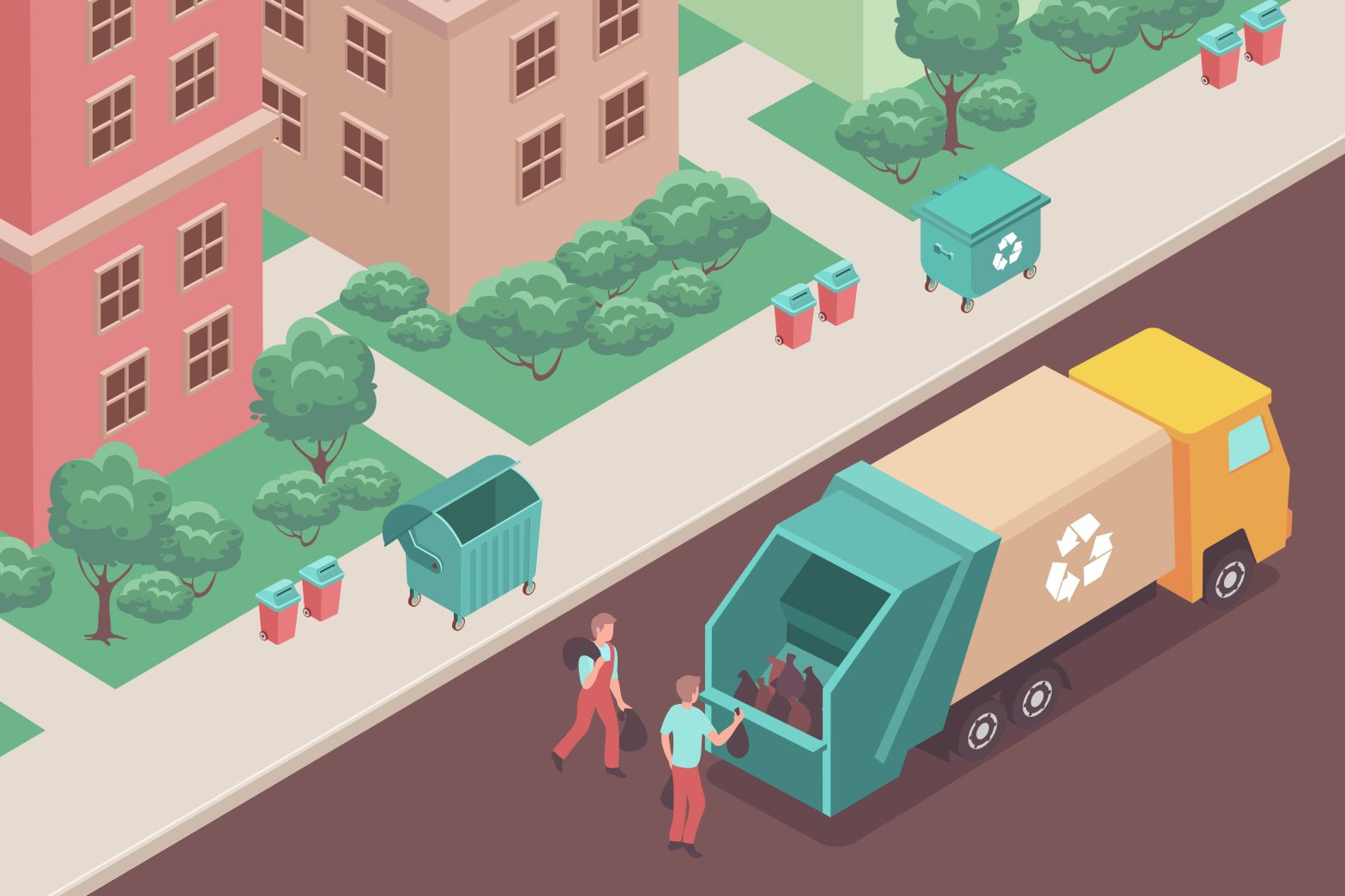
When you hire a skip bin, have you ever wondered what happens to your rubbish once the bin has been collected? What do they do with it all, and where does it go? Whether you hired it for a construction project, home renovations, or to manage your green waste, understanding the journey your rubbish goes on after it leaves your worksite is crucial. How else will you recognise the impact your waste management choices have on the environment?
Read on to discover what takes place once your general waste skip bin has been collected, and learn about the role proper recycling and waste management play in securing a more sustainable future.
Skip Bin Hire: The Journey From Collection to Recycling
Collection is the first step of the waste management process. Once filled, your skip bins will be taken away by trained waste management professionals. The waste they collect can vary greatly, including everything from construction rubble and debris to household trash and organic garden waste. The first step involves transporting this waste to a specialised facility where it can be sorted, processed, recycled, or disposed of – that’s where the next phase of the journey begins.
Waste Management Facilities: Sorting Trash From Treasure
Once your rubbish reaches the waste management facility, the real magic begins. Whether you’re hiring a construction skip for rubble and debris or a green waste skip for general garden cleanups, the contents of your bin will be meticulously sorted. Separating recyclable materials from those being sent to landfills is a crucial step in the process. Combining advanced sorting technologies with manual sorting techniques, these facilities ensure all materials are correctly identified and separated for processing. Metals, plastics, glass, and organics are set apart for recycling, while the rest are carted off for disposal.
Recycling and Repurposing
Recycling and repurposing are essential for sustainable waste management, turning what was once considered waste into valuable resources. It also diverts waste away from landfills and incinerators, reducing pollution. Upon arrival at the recycling facility, materials are sorted based on type and quality and then cleaned to remove any contaminants that could hinder the recycling process.
Any recyclable materials discovered during the sorting stage are then sent to be processed and turned into new products. For example, construction waste can be crushed up and reused as aggregate in new building materials. Organic green waste can be composted and turned into nutrient-rich mulch to improve the soil quality of farms and gardens. Paper is pulped, plastics are shredded, and glass is melted down to form new jars and bottles. Recycled aluminium can be used to make new cans, foil, and even aeroplane parts.
Disposal of Non-Recyclable Waste
In the journey towards sustainability, the disposal of non-recyclable waste still presents a significant challenge. Despite advancements in technology and efforts to recycle as much as possible, some materials simply cannot be salvaged.
Certain materials are non-recyclable due to their complex composition, contamination, or economic viability – it simply costs too much to extract anything of value. As a result, materials rejected for recycling ultimately end up in landfills. That said, modern waste management strategies aim to minimise the amount of non-recyclable waste, reducing the volume sent to landfills and mitigating the negative impacts they have on the environment.
The Importance of Responsible Waste Management
By choosing skip bin hire for all your waste management needs, you are helping contribute to a greener future. Properly sorting and recycling waste materials not only helps conserve valuable resources. It helps minimise the amount of waste dumped in landfills, too, reducing greenhouse gas emissions, pollution and contamination.
It also helps support a circular economy, minimising waste to make the most of our existing resources. This approach helps create a more sustainable, eco-friendly way of living and working, encouraging sustainable business practices for many years to come.
Choosing the Right Skip Bin For You
If reducing your impact on the environment is your goal, it’s important to choose the correct type of skip bin for your needs. Whether you require commercial skip bins for large-scale projects or a residential skip bin for home clean-ups, selecting the appropriate bin for the task at hand can significantly improve the efficiency of your waste sorting and recycling efforts. These options include:
- Construction Skip Bins: Ideal for disposing of building and demolition waste, this option is great for recycling materials like concrete, bricks, and timber.
- Residential Skip Bins: Perfect for household garbage, allowing you to easily separate recyclable materials from general waste.
- Green Waste Skip Bins: Designed for general garden cleanups, this option ensures all organic materials are mulched and composted, not added to landfills.
- General Waste Skip Bins: The most versatile option for mixed waste, careful sorting is essential for maximised recycling.
When you select a skip bins hire service, you’re not just throwing out your rubbish; you’re part of a larger effort to protect the environment. By understanding what happens to your waste after it goes in the bin, you can make informed decisions about your waste management strategies and help contribute to a more sustainable future.
How You Can Help
The journey your trash takes from skip bin to recycled treasure might seem complex, but understanding the process is a great first step towards more sustainable living.
Choosing the most suitable skip bin for your needs and properly sorting your rubbish can greatly increase the amount that gets recycled. What’s more, by educating yourself and others, you can encourage the adoption of more responsible waste management practices. It may seem like a small thing, but every piece of rubbish that gets recycled is a win for the planet.






